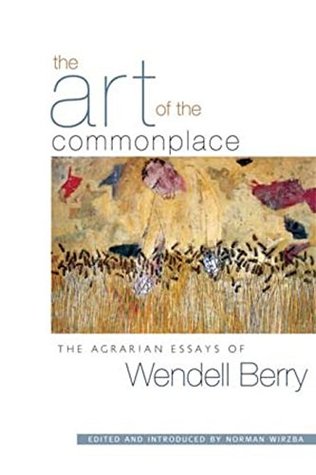More on this book
Kindle Notes & Highlights
Read between
October 10 - December 30, 2023
Too much that we do is done at the expense of something else, or somebody else. There is some intransigent destructiveness in us. My days, though I think I know better, are filled with a thousand irritations, worries, regrets for what has happened and fears for what may, trivial duties, meaningless torments—as destructive of my life as if I wanted to be dead. Take today for what it is, I counsel myself. Let it be enough. And I dare not, for fear that if I do, yesterday will infect tomorrow. We are in the habit of contention—against the world, against each other, against ourselves. It is not
...more
We see the likelihood that our surroundings, from our clothes to our countryside, are the products of our inward life—our spirit, our vision—as much as they are products of nature and work. If this is true, then we cannot live as we do and be as we would like to be. There is nothing more absurd, to give an example that is only apparently trivial, than the millions who wish to live in luxury and idleness and yet be slender and good-looking. We have millions, too, whose livelihoods, amusements, and comforts are all destructive, who nevertheless wish to live in a healthy environment; they want to
...more
It seems likely, then, that what we now call racism came about as a justification of slavery after the fact, not as its cause. We decided that blacks were inferior in order to persuade ourselves that it was all right to enslave them.
There are, however, still some married couples who understand themselves as belonging to their marriage, to each other, and to their children. What they have they have in common, and so, to them, helping each other does not seem merely to damage their ability to compete against each other. To them, “mine” is not so powerful or necessary a pronoun as “ours.”
The problem is not just the exploitation of women by men. A greater problem is that women and men alike are consenting to an economy that exploits women and men and everything else.
A corporation, essentially, is a pile of money to which a number of persons have sold their moral allegiance. As such, unlike a person, a corporation does not age. It does not arrive, as most persons finally do, at a realization of the shortness and smallness of human lives; it does not come to see the future as the lifetimes of the children and grandchildren of anybody in particular. It can experience no personal hope or remorse, no change of heart. It cannot humble itself. It goes about its business as if it were immortal, with the single purpose of becoming a bigger pile of money.
We will discover that for these reasons our destruction of nature is not just bad stewardship, or stupid economics, or a betrayal of family responsibility; it is the most horrid blasphemy. It is flinging God’s gifts into His face, as if they were of no worth beyond that assigned to them by our destruction of them.
The formula given in Genesis 2:7 is not man = body + soul; the formula there is soul = dust + breath. According to this verse, God did not make a body and put a soul into it, like a letter into an envelope. He formed man of dust; then, by breathing His breath into it, He made the dust live. The dust, formed as man and made to live, did not embody a soul; it became a soul. “Soul” here refers to the whole creature. Humanity is thus presented to us, in Adam, not as a creature of two discrete parts temporarily glued together but as a single mystery.
If we think of ourselves as lofty souls trapped temporarily in lowly bodies in a dispirited, desperate, unlovable world that we must despise for Heaven’s sake, then what have we done for this question of significance? If we divide reality into two parts, spiritual and material, and hold (as the Bible does not hold) that only the spiritual is good or desirable, then our relation to the material Creation becomes arbitrary, having only the quantitative or mercenary value that we have, in fact and for this reason, assigned to it. Thus, we become the judges and inevitably the destroyers of a world
...more
But in its de facto alliance with Caesar, Christianity connives directly in the murder of Creation. For in these days, Caesar is no longer a mere destroyer of armies, cities, and nations. He is a contradicter of the fundamental miracle of life. A part of the normal practice of his power is his willingness to destroy the world. He prays, he says, and churches everywhere compliantly pray with him. But he is praying to a God whose works he is prepared at any moment to destroy. What could be more wicked than that, or more mad?


